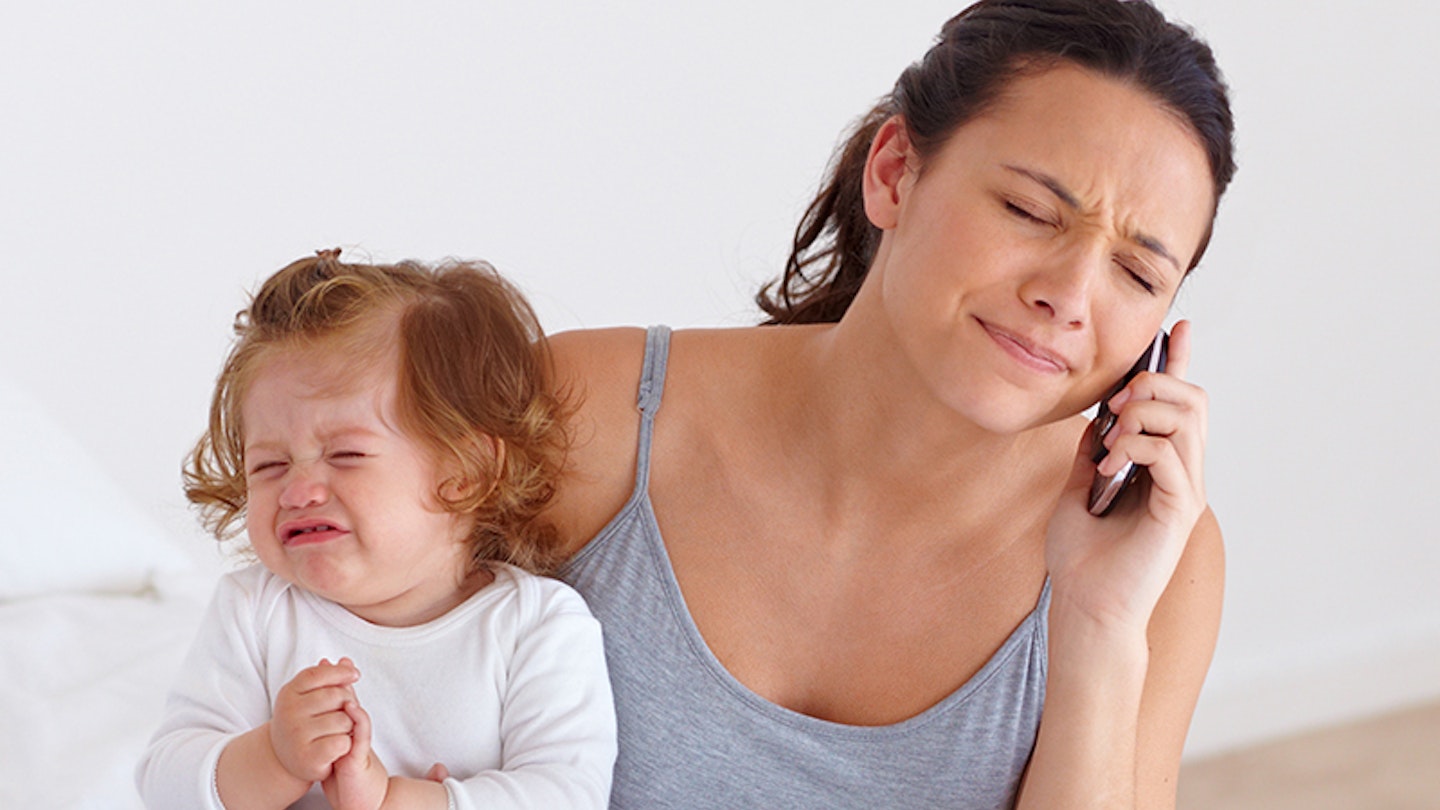Mothers are the unsung heroes of the world.
From the first-ever primate mama, right down to the current generation, mothers work –and have always worked– downright hard. All mothers across the globe, through all ages in time, have at some point in their journey through motherhood looked off into the distance and said, “No one told me life was gonna be this way".

Credit: @NotesToKids @ReneeCharytan
Despite the difficulties, billions of mothers have managed to have children, raise them, and live to tell the tale. So why is it then that most modern mothers ask themselves on a daily basis, “Will I survive this?”
If you ever find yourself struggling with motherhood but thinking, “Well, generations of women successfully did it before me, so why do I feel like this is impossible?” stop right there. Some people may not want to hear this, but it’s the truth, and we have the proof: simply put, modern mothers have it tougher.
Here are 10 reasons why modern motherhood is vastly different –and much harder– than it was in the olden days.
1) Lack of community
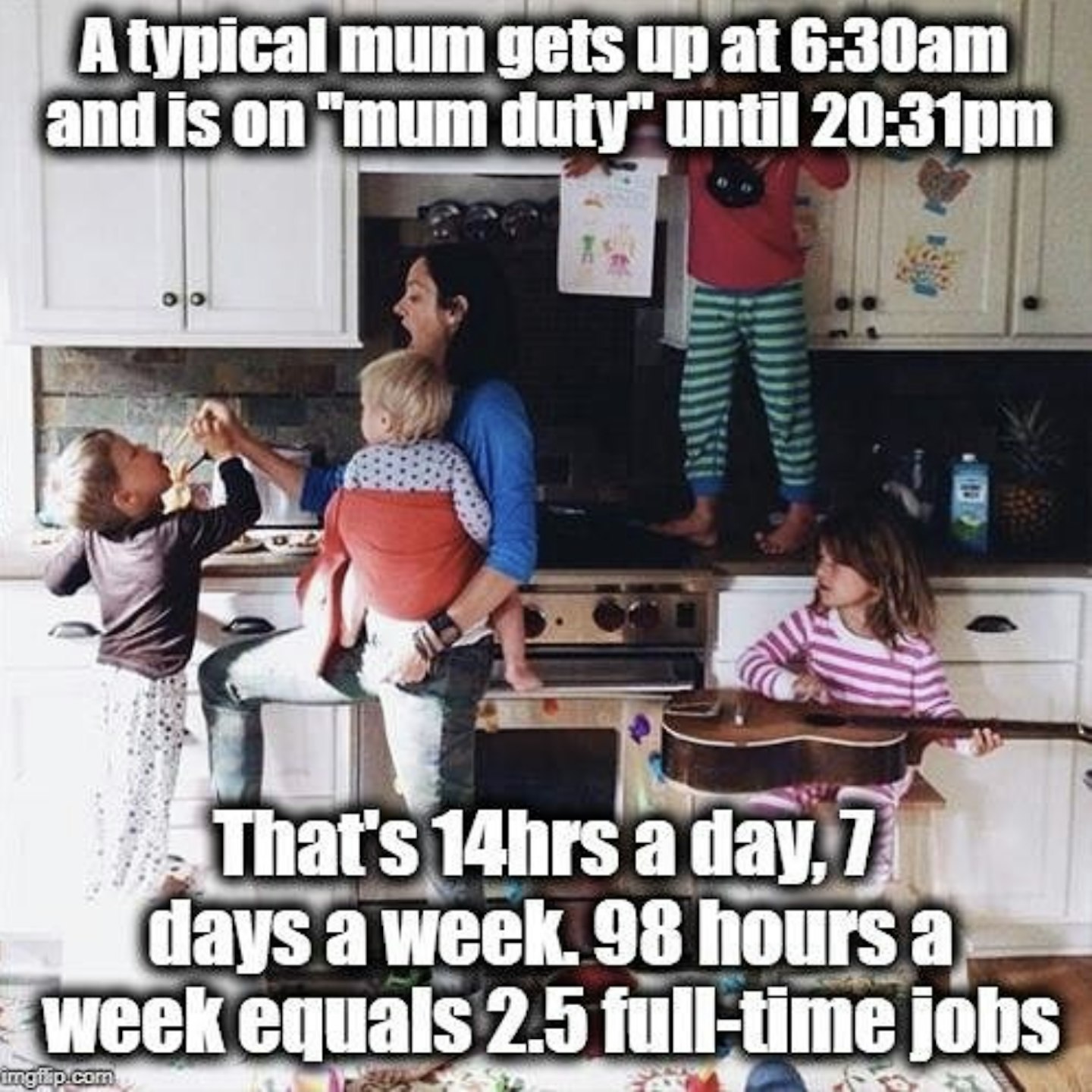
Most families in Western society comprise of two people in a relationship, and their offspring, but that’s not always how it used to be. The Native Americans believe that the community is everything and a big part of who we are as humans. For them, the family goes beyond their parents and siblings.
They say that man wasn’t made to be a lone wolf, and neither were we supposed to find just one person, our “soul mate”, and then expect them to fill every single role in our lives; partner, lover, friend, co-parent, therapist, etc.
If we lived as nature intended, according to the Cherokees, other members of the tribe would help fill these roles, alleviating the pressure from one individual, with each person in the tribe having their own responsibilities. In some tribes, the second set of parents were chosen for a baby at birth.
These unrelated people would work together to raise the infant. If one person was unable to provide childcare, there were others who would help and make sure that the family succeeded. It would literally take a tribe to raise a baby.
Most commonly, earlier generations would either live together, or be on the same street or at least in the same area. Children would grow up with their grandparents, great grandparents, uncles, aunts, cousins, second cousins, and third cousins but a stones-throw away. There was a strong sense of community and with that came assistance.
The role of looking after the children every waking moment wasn’t solely on the mother.
Moving far from your family was uncommon unless it was a necessity –think war or pestilence– but even in those instances, whole families and extended families would usually relocate together. Some families took up entire streets or even areas in their new locations.
It’s not a coincidence that some zones have a majority of one nationality (the Cypriots in Palmers Green or the Bangladeshis in Brick Lane, for instance). This structure made it so that all the children could bunch together at one house, or even outside under the watchful eye of the whole neighbourhood so that mum could attend to the other million things she had to do.
As we’ve evolved and city life has become more prevalent and necessary, we have moved further and further away from community life. Two people –and in some cases just one– are raising their children alone and are unreasonably expected to fill all the roles it takes to do so. Against our nature, we became the lone wolf.
2) Unfamiliarity with babies
via MEME
The aforementioned life in a community structure meant that people used to be constantly subjected to babies. A baby in the vicinity wasn’t a rare “ooh, aah,” moment; it was the norm. Holding someone’s baby while they popped to the loo or went to make a cuppa was pretty standard.
Ask older generations; babies were as prevalent as iPhones back in the day (possibly because iPhones didn’t exist so they had to find other ways to spend their time). Most people nowadays have never even held a baby, never mind deal with crying or changing a nappy.
We are now handed a baby a couple of days after the whole traumatizing birth fiasco, expected to take it home with strict instructions to keep it alive, and are assumed capable of doing so because we attended a few prenatal classes.
FYI, practicing changing a nappy at a prenatal class on a plastic, unmoving, non-crying, non-fidgeting doll that doesn’t have runny green poo all the way up its back is not the same as changing a real-life baby. No amount of prenatal classes and reading up can adequately prepare you for when your baby arrives, especially if you’re not familiar with babies.
3) Grandparents have their own lives now
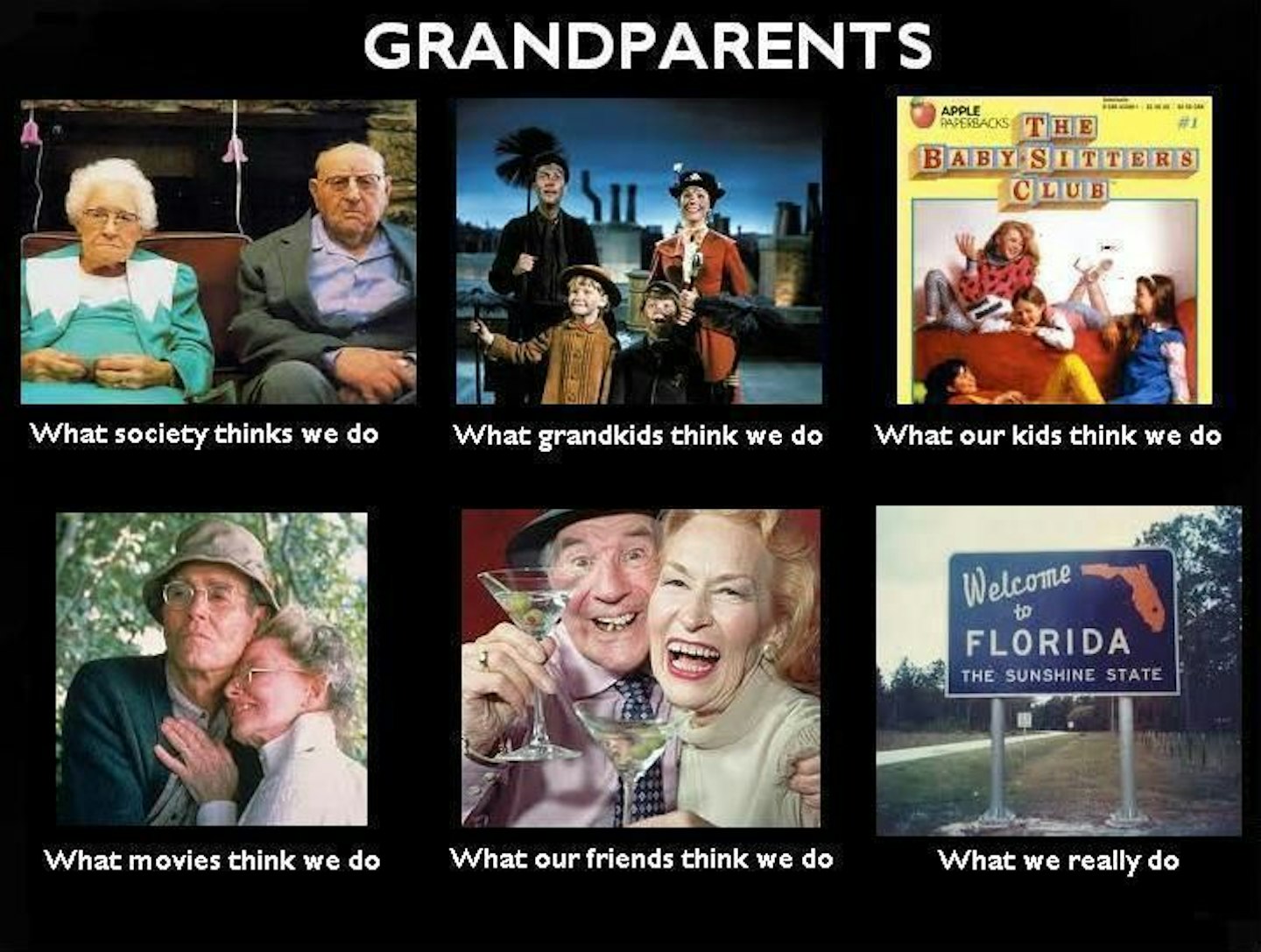
Throughout world history, grandparents have been looking after their grandchildren and taking an active part in their upbringing. It was kind of assumed that when you have a baby, your parents would chip in and assist.
Most of our generation and the generations before remember practically being raised by our grandparents or at least can recall being around them a lot. While some people still do live near their parents and are lucky enough to have them help out, this isn’t the case for the masses anymore.
Grandparents aren’t what they used to be. Firstly, in most cases, they don’t even live in the same area. Due to the necessity to move to where there are jobs, a lot of people have moved into the city and don’t live near their parents anymore.
When children come along, as opposed to back then, grandparents can’t just hop on a train or plane to come to look after the kids for a few months, because they have their own lives to think about. A lot of our parents are still working. While the retirement age for women used to be 60, it’s now 67 or 68. Even if they do happen to live near us, they can hardly just give it all up to come to look after our sprogs.
Back then, grandmothers didn’t really have anything else to do but look after their grandkids. Now? Well now, grandmothers have Facebook. They have social lives (more active than ours, it would seem). They have things to do, places to go, people to see.
4) Freedom and safety
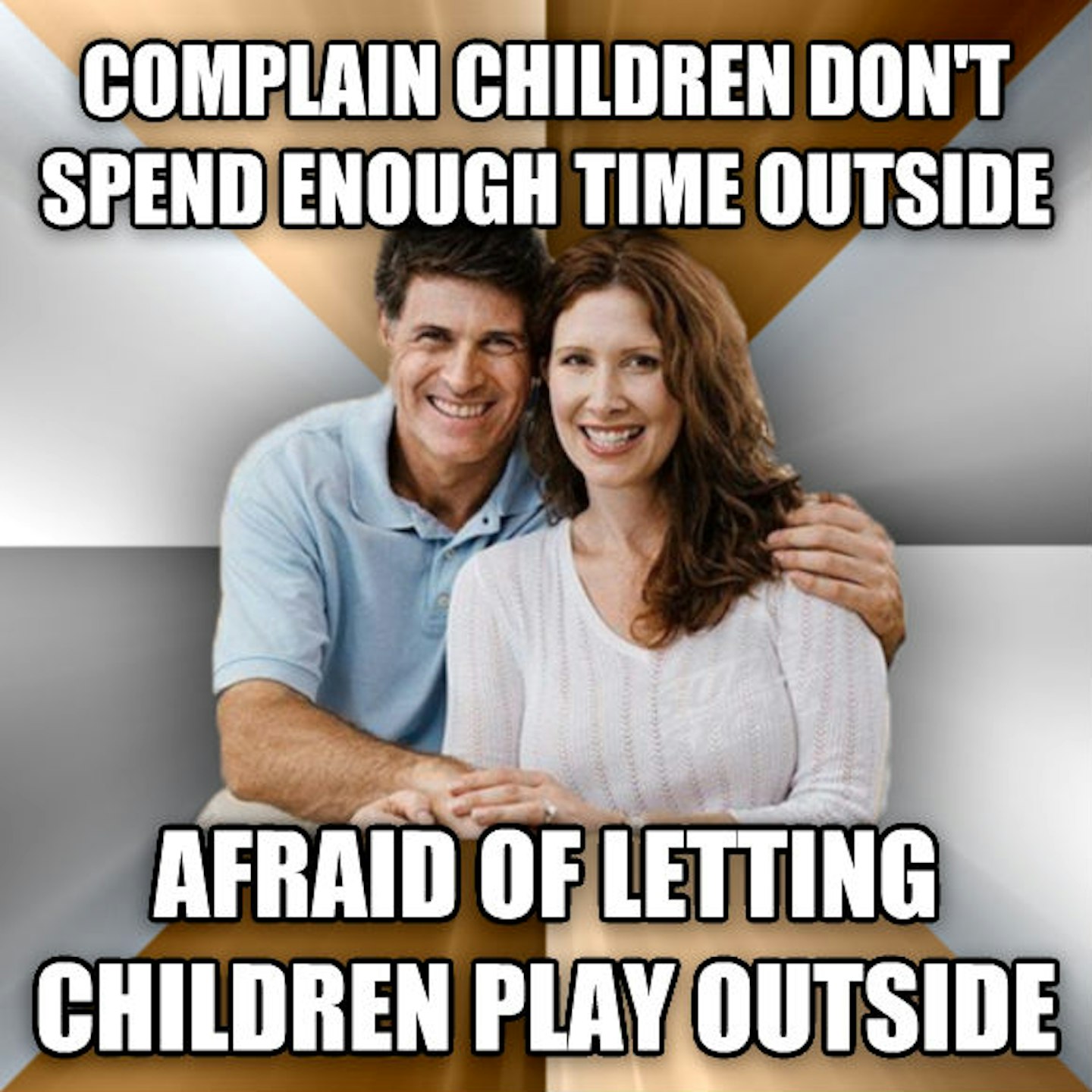
Ah, the glorious olden days, where children would leave the house at the crack of dawn and return just before dinner when the street lamps went out, during which time, mothers got all the housework done, and perhaps even managed a nap.
Name one parent now who lets their child wander out of the house and tells them to come back “before dark”. Not to say that crime wasn’t happening back then, but it wasn’t as rampant and perhaps due to the lack of media, they weren’t so aware or cautious, and there wasn’t this need for the super security that we have today.
For the safety and wellbeing of our children, everything needs to be background checked. We need security cameras, nanny cams, car seats, other safety equipment, and safety education. For an outing, they need protective gear, sunscreen, and insect repellent.
Did they take their meds and vitamins? Remembering to buy all these things (after researching which are the best ones) and remembering to use them all correctly are just more things to add to the modern mother’s never-ending to-do list.
5) Women nowadays are required to do more
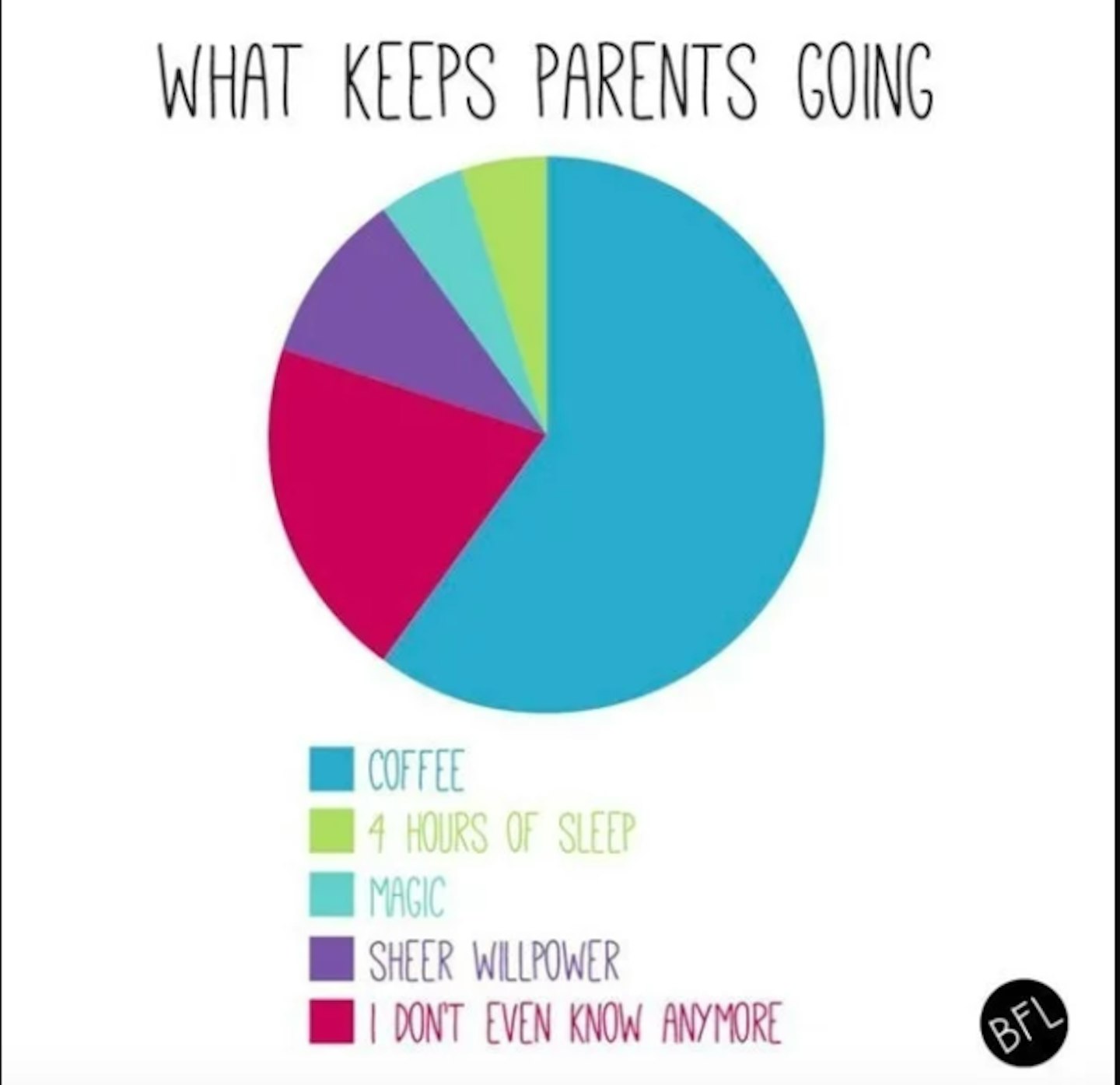
It’s hard to imagine our mothers in their aprons, cleaning, cooking, doing the laundry, hosting, etc., as doing less than us… but it’s true. Back when there was no social media or easy internet-access, they didn’t know that they should be researching what brand of fabric softener to use that would be less harmful to their families and the environment, and so the one that smelled the best was put into the shopping trolley and that was that.
They weren’t aware that processed foods are “bad” and so frozen chicken Kievs, potato waffles, and microwave meals for dinner every day was absolutely fine. Allowing the children to sit in front of the TV all day wasn’t yet frowned upon by society and no one was yet guilting them into sitting, playing, and reading with the kids all day to better aid their development. There is more homework than before. There are more afterschool activities. Kids see more, so they want more, and parents have to do more.
And that’s just when it comes to the kids. As for themselves, women didn’t realise that they should be contouring, so make-up was much easier –just blush and go. They weren’t aware that they needed to be taking vitamins, exercising, and looking after their mental health, too.
Back in the day, people were not even required to shower every day, and they did not. Firstly, showering meant having to boil hot water in a cauldron or saucepan and, as you can imagine, they didn’t do this on the daily. We don’t even need to go that far back though; even when hot water started being more accessible, showering daily wasn’t a thing. Humans reasonably smelled of human.
Now, body odour has been stigmatized so much that the tiniest little bit can send someone over the edge. We’re not talking about stenching, but it’s assumed that if we don’t smell of soap, we’re not clean.
Recently, Taylor Swift came under fire because sheinsinuated that she might not wash her legs every day. This is the level of pressure we have to live with. Medical experts actually advise against showering daily, but we do it because we like it, so as not to offend others by smelling remotely of human (how dare we?), and because we’ve been told that we are smelly-pants if we don’t.
Modern mothers are required to take care of their appearance, be clean and gorgeous, make sure the house is spick and span and baby-proofed, have healthy homemade organic meals prepared every day, ensure their husbands don’t feel abandoned, all while spending quality time with their kids 24/7 –and with no help.
6) Work, work, work, work, work

Talking of doing more, more mothers are working now than ever before. Sure, women have been working for generations and working just as hard as men. Towards the beginning and even middle of the last century, however, the norm in most of the world was that Mum stays home and looks after the house and kids and Dad works to bring home the bacon. Not to undermine the millions of women who have done both, and all the single mothers out there too, but since we’re talking about the masses, back then women weren’t required to work as much. Their husbands could comfortably take care of them and their families.
Now, not only do women prefer to work, make their own money, and not be supported by their husbands but in most of the cases, even if they wanted to be stay-at-home-mums, one salary just doesn’t cut it anymore. Back then, they were giving low-rate mortgages to just anyone, and the husband’s salary was more than enough to take care of a family of five with a little left over for holidays and savings.
Now, you need one person’s salary just to pay for the rent or the mortgage, and another’s to pay for living expenses. It sure ain’t like the olden days, folks.
The proportion of working mothers in the UK has risen over the last few decades and now stands at 71% compared to just 50% in 1975. 4.9 million mothers with dependent children (compared to 3.7 million in 1996) are now in employment. In the 50s, only 34.7% of women worked in total.
However much our feminist streak doesn’t like it, the simple fact is that women were homemakers. Now, women have to do all of that, while holding down a full-time job as well.
7) We spend more time with the kids (and more time worrying we’re not doing it all perfectly)
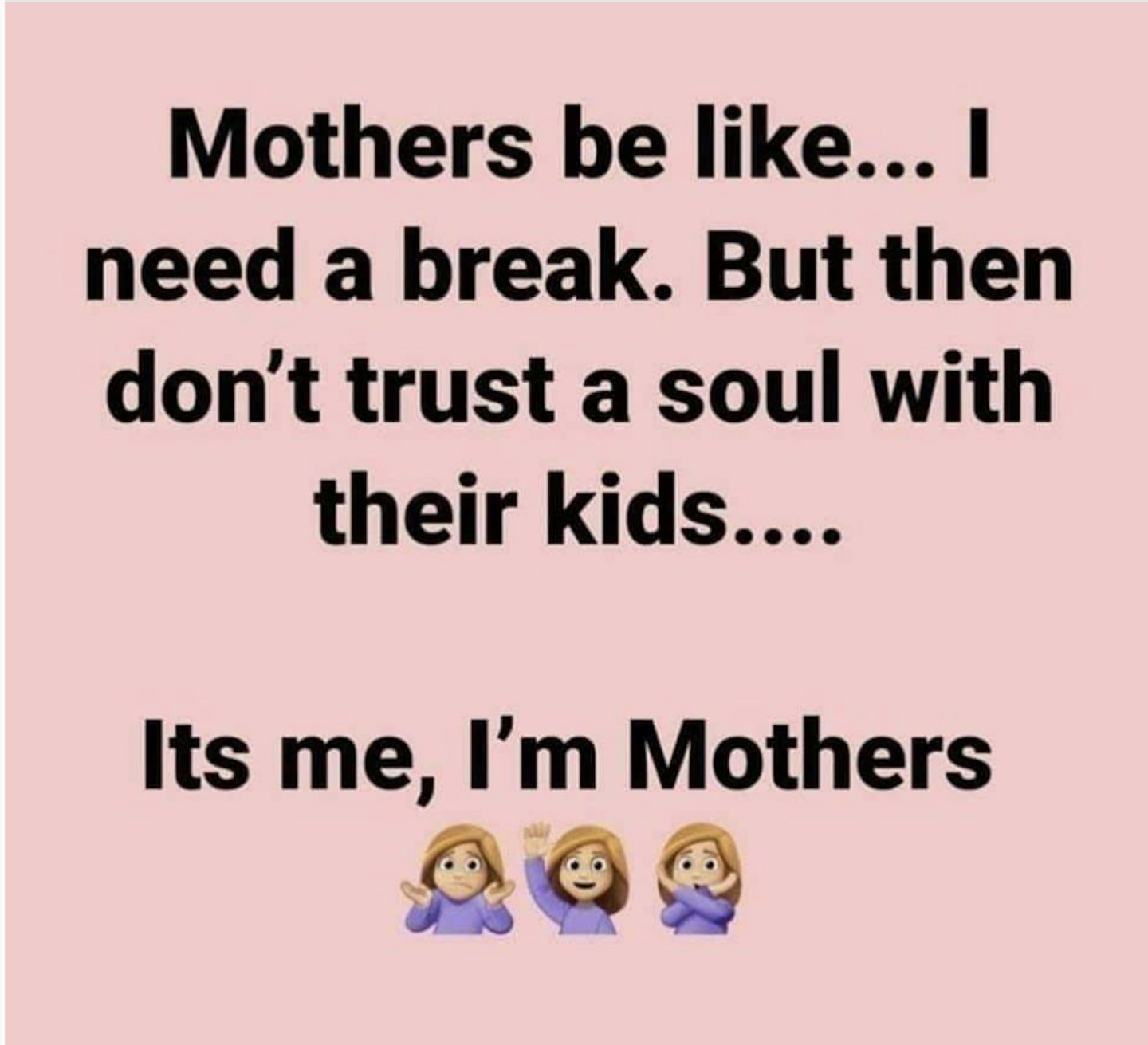
The rise of media and social media has made it so that we are more informed than ever before. Parents back in the day didn’t really focus as much on their children’s psychological wellbeing. As long as they were alive and healthy, that’s what mattered. In days of yore, mums used to spend so much time cooking and cleaning that they usually left the kids to their own devices. We are wiser to these effects now and know how important it is for parents to spend quality time with their kids. We know that our children’s psychological welfare is just as important as their physical health.
We think about what we say to them and how we say it. We research toys and games before we let them play. We consider how we act in front of the kids and how it could affect them. We make sure they’re eating right, getting their five a day, doing enough exercise, are being socialised, are drinking enough water, have a routine, get their shots, are developing properly and hitting all the key developmental stages and if not, helping them get there.
Parents now spend twice as much time with their kids as they did 50 years ago. We somehow pluck the hours out of thin air and manage to spend more time with them while still doing everything else.
8) Mum guilt and mum shaming
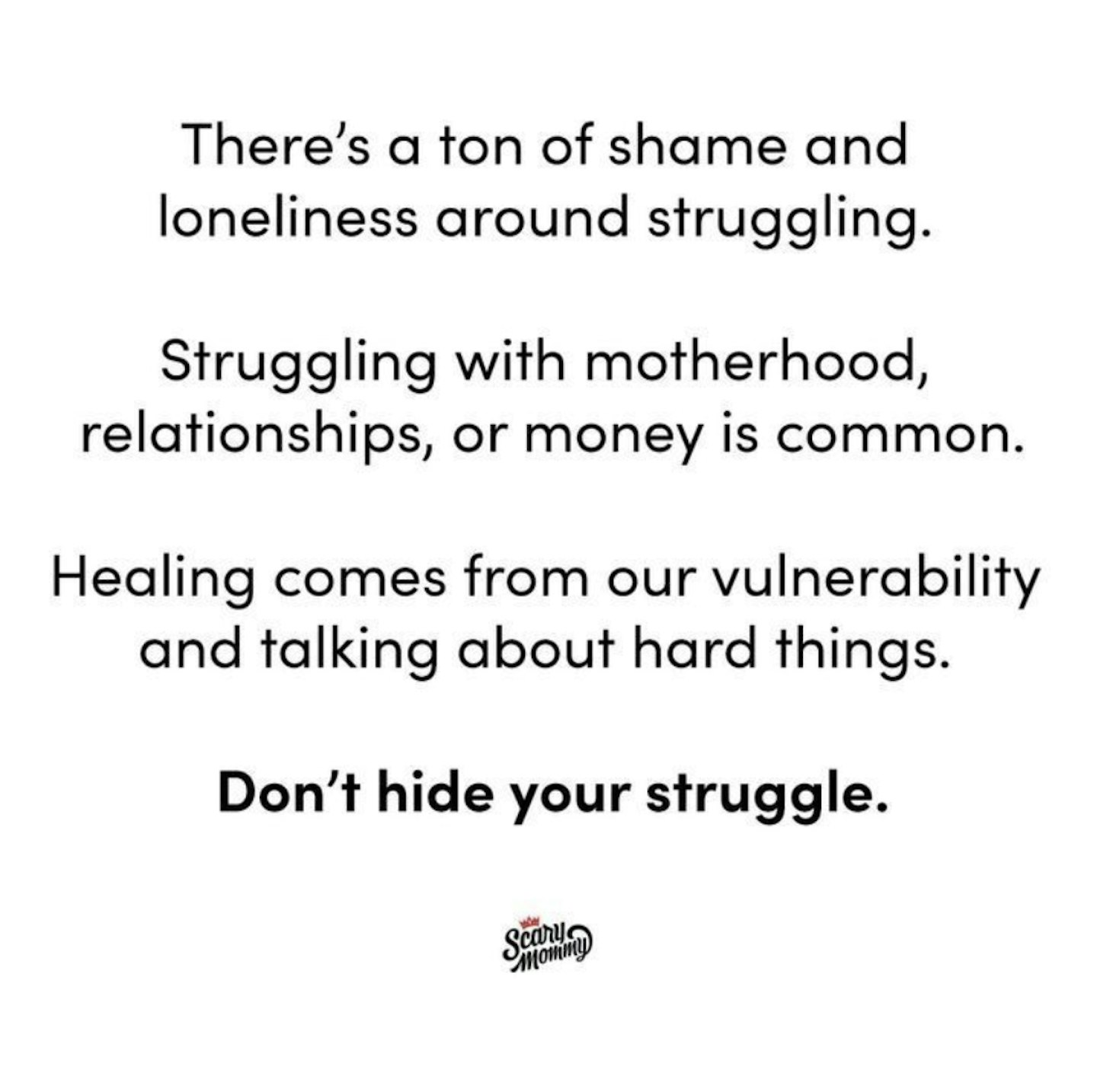
Credit @scarymommy
Mum guilt is very real. Granted, mum guilt has always been a thing, the only difference is that now we have more things –infinite, in fact– to feel guilty about. We have guilt for working. We have guilt for not working. If we do leave the kids by the TV so that we can tend to the endless chore list, we have guilt. If we don’t leave them and let the housework pile up, guilt. We feel guilty for not spending enough time with our significant other, but if we do somehow manage to get a kid-free weekend away, we feel guilty about it.
To top it off, in the struggle to manage to do everything, we have guilt for struggling. Well, how are other people managing so swimmingly? we think to ourselves while scrolling through perfect mummy Insta-feeds.
Mum guilt more often than not goes hand in hand with mum-shaming. Every which way we turn, there’s someone shaming us about something or other –whether blatantly or inadvertently– which in turn, makes us doubt ourselves.
Hands up if you spent the whole duration of your school summer holidays at your grandparents’ house in the sticks? Imagine sending your own kids off now for that long. You’ll be stoned in the public square. We feel bad for taking time for ourselves, and we feel bad for relying on anyone or anything else for any aspect of childcare. Which leads us to…
9) New parent exhaustion and post-partum depression
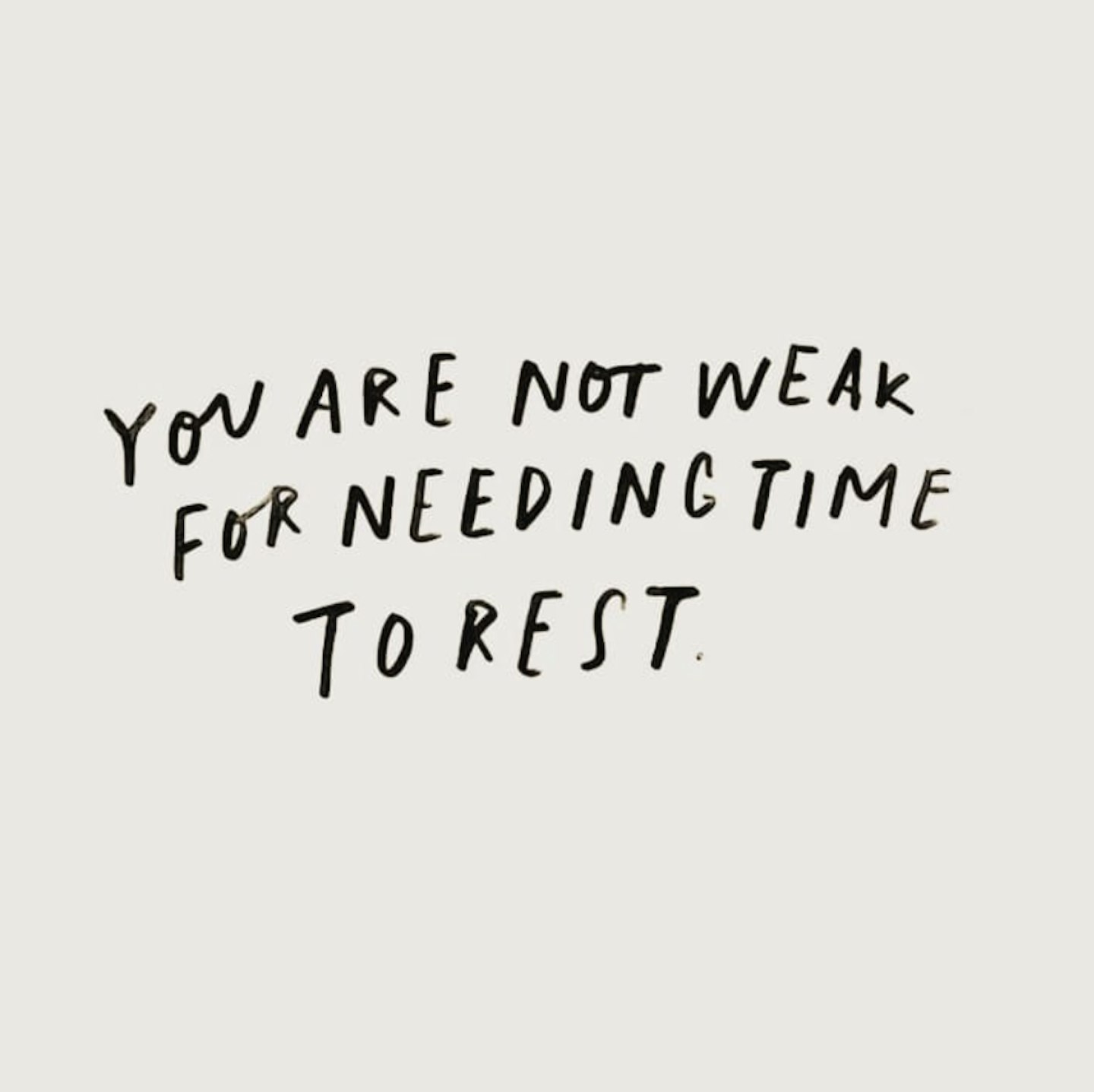
Credit: @morganharpernichols
Exhaustion and depression are bad enough on their own but have kids and you get upgraded to the fully-comprehensive and deluxe new parent exhaustion and post-partum depression package.
A recent study reports that new parents can face up to six years of sleep deprivation, and that’s just for one child. Sleep deprivation, an ancient and effective form of torture, also favoured by the CIA, can decay the mind and body, causing weight gain, depression, anxiety, poor quality of life, heart attack and stroke… and it comes part and parcel of being a new parent.
Post-natal depression, a maternal mental health disorder which often goes untreated and can actually even start in pregnancy, affects millions of women annually across the globe, with as much as 1-2 out of every 1000 women developing post-partum psychosis, 10 of which tragically result in suicide or infanticide.
Yes, new parent exhaustion and post-partum depression have always been around, but since modern life means we have less help and more stress, this is not something that should be ignored or taken lightly.
10) We are constantly watching, being watched, and comparing
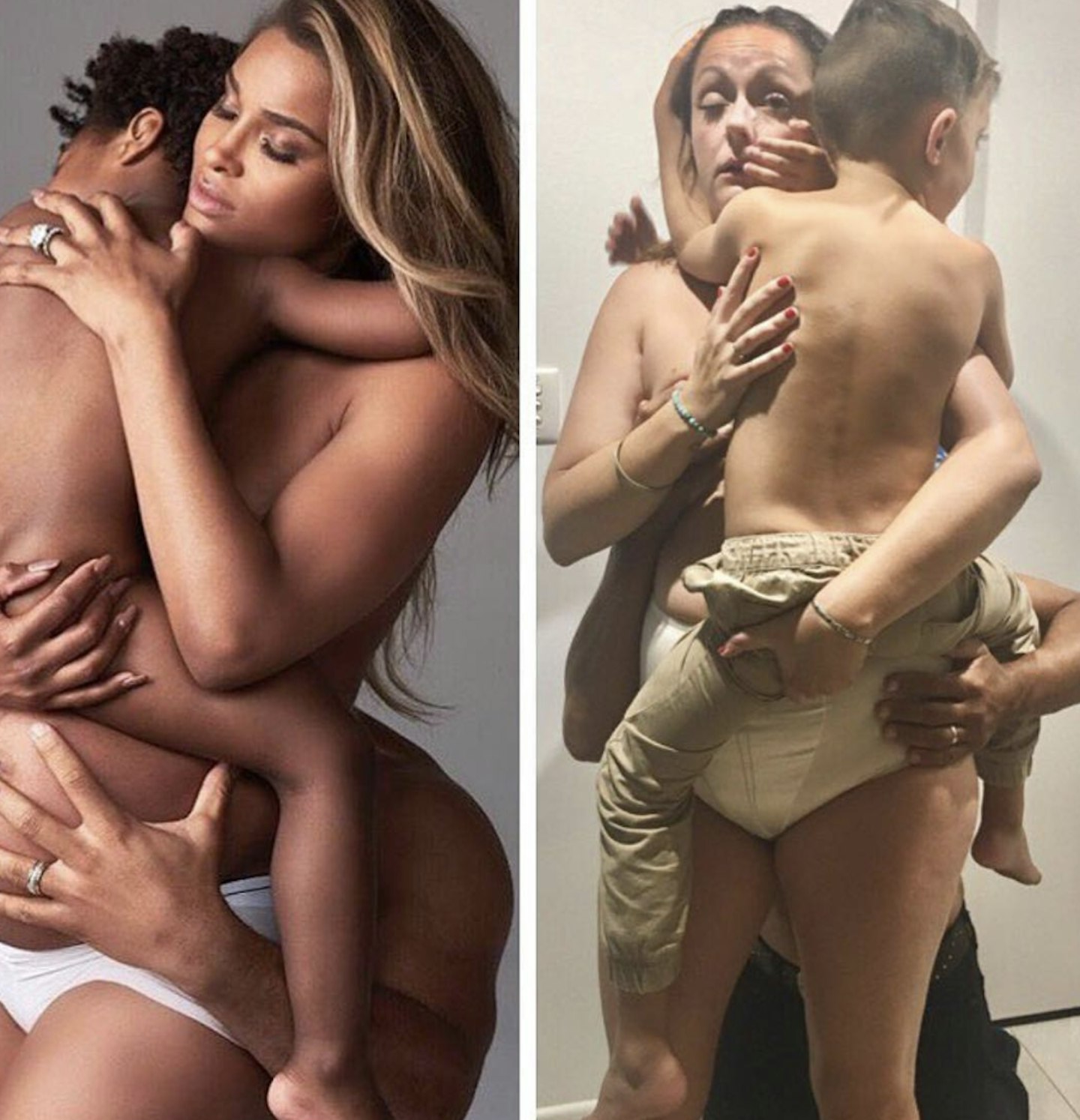
Credit: @celestebarber
Social media, that devil. We all know what’s up. Gone are the days where we didn’t know what anyone else was doing, they didn’t know what we were doing, and our great aunt from Australia couldn’t watch our park Insta story and tell us to put a jacket on our child.
Watching someone’s highlight reel shouldn’t make us question our reality, but somehow, looking at the perfect mamas on the gram with their flawless babies and spotless houses can still get us down. When scrolling through our feeds, human tendency is to make upward, nondirectional, and downward social comparisons, thinking that we’re better off, the same, or worse off than our friends.
Even though logic tells us that these feeds are not indicative of the madness of real-life with kids, evidence proves that “people feel depressed after spending a great deal of time on [social media] because they feel bad when comparing themselves to others.”
But it’s not all bad. People are starting to have the discussion on social media. The real-life discussion. Many mothers, mum-bloggers, and celebrities have taken to be more honest about the struggles of parenting.
Even people who do have the economic luxury of hiring help are still feeling pressured into doing it all themselves, and end up feeling overwhelmed. “There’s this thing called the fourth trimester which happens after you have your baby,” says singer Jordin Sparks.
“It’s dealing with everything that happens with your body. Your body goes and changes, your hormones are absolutely insane. We’ve got tons of people to hold the baby, but who holds us? Who holds us together? Who helps us get through all that stuff?”
“I feel guilty that I’m not enjoying every second,” says Stacey Solomon. “Thinking of all of those who don’t have a support system around them. If you need someone to talk to there are people out there… please don’t hesitate to reach out.”
Yes, mothers have always been forces of nature to be reckoned with, but the modern mother… well, the modern mother is a breed of her own. *pats self on back* Let’s continue this conversation. Let’s speak up and ask for help. We don’t have to keep it all inside.
There’s a whole population of mums out there who are feeling exactly like you right now and we need to stick together. Join the Mother & Baby #mumtribe, a safe space where you can reach out and connect to like-minded mothers and keep this discussion going because no mother anywhere should ever have to feel alone.
What do you think? Is being a mum tougher now than our foremothers? Let us know on Facebook orTwitter!
